|
Advocacy
|
|
ACCESS TO VETERINARY CARE IN THE NEWS
HSVMA ANNOUNCES ACCESS TO VETERINARY CARE COALITION
Effort aims to provide veterinary access for economically at-risk pets
(Aug. 23, 2016) – The Humane Society Veterinary Medical Association is pleased to announce the formation of the Access to Veterinary Care Coalition, a group which aims to reduce barriers to veterinary care access and promote communication among stakeholders. The coalition brings together veterinary, animal welfare and social services professionals, including representatives of for-profit and non-profit veterinary services providers.
An estimated 23 million pets live in families at or below the national poverty line. Millions more pets live in financially struggling middle class households that cannot afford veterinary care. Pets living in impoverished and economically struggling households may have few or no preventive or sick care options available, and their limited options for treatment of more serious injuries or illnesses too often results in being left to endure pain and suffering or “economic euthanasia”.
Ted Cohn, DVM, member of the coalition said: “As caring and compassionate veterinarians, I believe it is our duty to both better understand the reasons behind the immense numbers of pets currently not receiving adequate veterinary care and to then endeavor to find solutions to the problem.”
The group plans to study how effective programs operate to ensure sustainable access to veterinary care. The coalition will study target populations and the type of services provided, in addition to exploring how humane care may be provided under economic hardship circumstances. The findings of the coalition will be reported by July 1, 2018.
Questions about the AVCC can be sent to the attention of Jessica Martinez, [email protected].
ACCESS TO VETERINARY CARE COALITION MEMBERS
- Michael Blackwell, DVM, MPH, Board Member, HSVMA, Chair
- Danny Burke, Manager, Pets for Life Chicago
- Ted Cohn, DVM, AVES (Hon), practitioner and national leader in veterinary medicine
- Teresa Fisher, Program Administrator, Companion Animal Initiative of Tennessee, Coll Vet Med, Univ of TN
- Brian Forsgren, DVM, Chief of Staff, Gateway Animal Clinic
- Inga Fricke, Director of Shelter and Rescue Group Services, HSUS
- William Gilles, DVM, Director, Wisconsin Companion Animal Resources, Education, and Social Services (WisCARES)
- Lisa Greenhill, MPA, Ed.D., Assoc Exec Dir for Institutional Research and Diversity, AAVMC
- Laura Helmueller, DVM, Chief Medical Officer, Emancipet
- Cristie Kamiya, DVM, MBA, Association of Shelter Veterinarians
- Susan Krebsbach, DVM, Veterinary Advisor, HSVMA
- Rachael Kreisler, VMD, MSCE, Assistant Professor of Shelter Medicine, Midwestern University College of Veterinary Medicine
- Will Mangham, DVM, Attending Veterinarian,Pets for Life Atlanta
- Sarina Manifold, LCSW, Assistant Professor of Practice, Veterinary Social Work, University of Tennessee
- Michael Moyer, DVM, Owner, Bridgewater Veterinary Hospital
- Jennifer Scarlett, DVM, Co-President, San Francisco Society of Prevention of Cruelty to Animals
- Cory Smith, Director of Public Policy, HSUS
- Akshay Verma, Veterinary Student and HSVMA Student Chapter President, CVM, Michigan State University
AVCC GUIDING PRINCIPLES TO ENSURE ACCESS TO VETERINARY CARE.
-30-
|
|
Advocacy
|
Oregon Supreme Court rules for welfare of seized animals
July 20, 2016
by Zarah Hedge, DVM, MPH & Emily Davidsohn, JD
In 2011, I was working at the Oregon Humane Society when I met a dog named Juno. After receiving a report from the public, one of the organization’s humane investigators had seized Juno on suspicion of neglect and brought him back to OHS to be evaluated by a veterinarian. I performed a thorough physical examination and, aside from having an emaciated body condition score (1.5 BCS using the Purina 1/9 scale), I did not find anything abnormal. In order to determine if Juno was emaciated because of starvation or because of an underlying medical condition, and as part of a complete veterinary forensics evaluation, I needed to perform further diagnostics. I took blood and fecal samples for analysis and started Juno on a feeding plan, and also monitored his weight twice a week while under our care. All of the laboratory tests were normal and Juno consistently gained weight over the course of several weeks indicating that his emaciated body condition was a result of inadequate nutrition. The owner of the dog was charged with animal neglect in the second d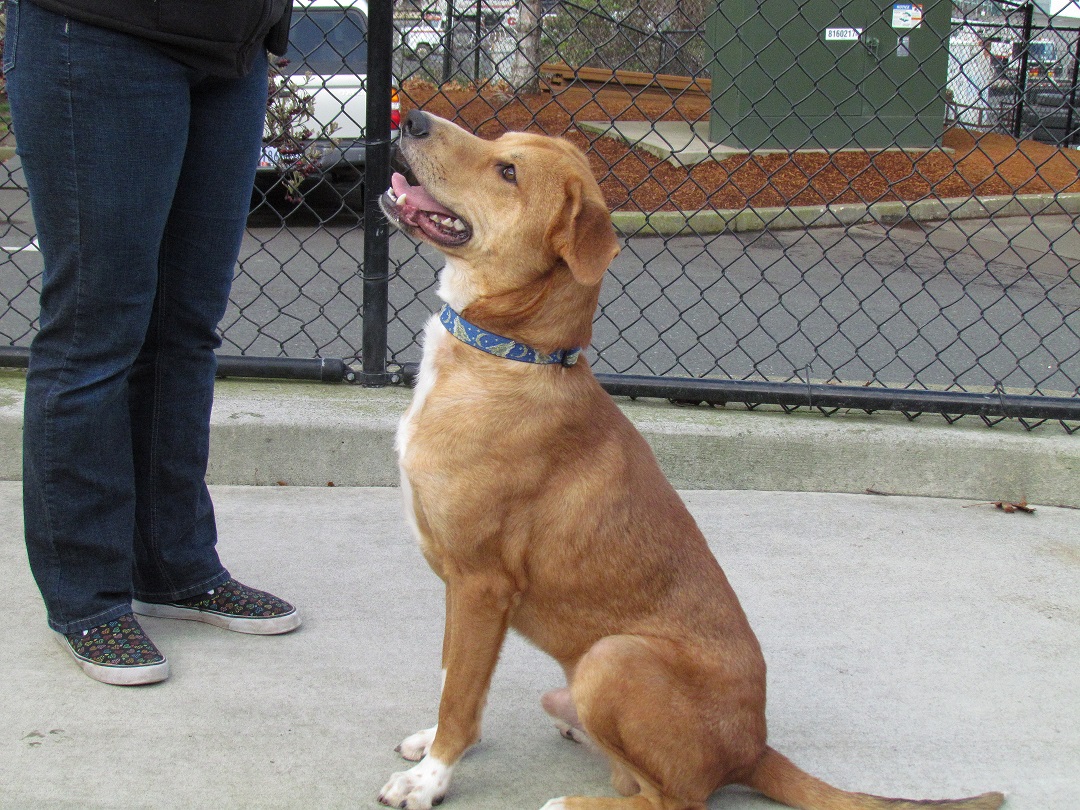 egree. egree.
Prior to the trial date, the defendant moved to suppress the laboratory test results and argued that the taking of the blood samples constituted an illegal search and seizure of her property (in this case, the dog, Juno). The defendant claimed that without having a warrant to draw the blood, I had violated both the Oregon Constitution and the Fourth Amendment to the United States Constitution. The circuit court judge denied the motion and the laboratory evidence was presented at trial. Based on the evidence and the testimony given at trial, a jury found the defendant guilty of animal neglect in the second degree.
After the trial, the defendant appealed her conviction, arguing again that the taking and testing of Juno’s blood was unlawful due to her privacy interest in Juno. In 2014, the Oregon Court of Appeals reversed the trial court’s ruling, stating that “the veterinarian, acting on behalf of the state, conducted a warrantless search of the dog by extracting and testing its blood—an act that constituted a physical invasion of defendant’s property and exposed otherwise concealed information about the dog that served as evidence of a crime.”1
The State of Oregon filed a petition for review of the Court of Appeals’ decision to the Oregon Supreme Court. It took two years before all of the documents were filed and arguments were heard by the Oregon Supreme Court. During those two years, law enforcement agencies were restricted from removing anything from the inside of an animal for evidentiary purposes in a criminal case without a warrant or an exception to a warrant. Oregon veterinarians were hesitant to conduct the necessary tests for diagnostics and treatment of seized animals out of fear of jeopardizing the outcome of a criminal case involving the animal victim.
On June 16, 2016 the Oregon Supreme Court issued its decision, reversing the Court of Appeals and confirming that there was no search and seizure violation in taking the blood sample from Juno.2 While animals are legally considered property, the Court noted that under the Oregon statutory code they are also “sentient beings capable of experiencing pain, stress and fear.”3 The Court concluded that Juno was not analogous to a closed container or any other object that might contain evidence and should not be analyzed as such. The Court pointed out that Oregon law prohibits humans from treating animals in ways that they are free to treat other forms of property.4
What does all this mean from a veterinary and forensic standpoint? Basically, in Oregon, there is no requirement for investigators to obtain a separate warrant before a veterinarian can perform diagnostic tests when evaluating and treating a lawfully seized animal. As veterinarians and medical professionals, we can continue to perform the necessary tests and treat abused or neglected animals under our care and know that the information we obtain can be used as evidence in criminal cases. As for veterinarians in other states, I would recommend that we always uphold our medical and ethical duty to treat the patient regardless of any evidentiary concerns.
Resources:
1. http://aldf.org/blog/one-step-forward-two-steps-back-damage-control-in-the-wake-of-state-v-newcomb/
2. http://www.publications.ojd.state.or.us/docs/S062387.pdf
3. http://www.oregonlaws.org/ors/167.305
4. http://aldf.org/blog/oregon-supreme-court-blood-draw-is-not-a-search/ |
|
|
Advocacy
|
Triple winners for first HSVMA/OSVS Compassionate Care Scholarship!
July 22, 2016
2016 marks the first year HSVMA and Ocean State Veterinary Specialists of East Greenwich, R.I. teamed up to recognize veterinary students who have demonstrated an interest in and commitment to animal welfare issues in veterinary medicine. While this is the first year HSVMA was involved in the scholarship, the program was initiated by Dr. Gary Block, HSVMA board member and OSVS owner, eight years ago, because he knew how important it is to recognize students going above and beyond to help animals while pursuing a veterinary career. “Only a truly special veterinary student is capable of devoting significant amounts of time and effort to animal welfare issues while they are undertaking a grueling four year veterinary curriculum.” Dr. Block continues, “This scholarship is a small effort to acknowledge and encourage those students who feel strongly enough to try and make a tangible difference in the lives of animals through educational, direct care, and legislative efforts.”
HSVMA received 25 applications outlining the remarkable work of veterinary students from across the United States. While initially planning to award just one scholarship, we were so impressed that we offered scholarships to three students! “The applications that were submitted showed a breadth of interests and professional aspirations ranging from studying forensic veterinary medicine to improving animal cruelty prosecutions to setting up a mobile spay/neuter clinic in Transylvania. Hopefully, scholarship applicants and scholarship winners will help shape and drive our profession following graduation and become lifelong ambassadors for the HSVMA,” said Dr. Block.
Learn more about the three winners of the inaugural HSVMA/OSVS Compassionate Care Scholarship
ALEXANDRA SHAILOR
University of Pennsylvania School of Veterinary Medicine, class of 2017
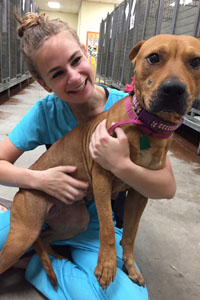
Alexandra Shailor knew from a young age that veterinary medicine was her calling. Shadowing a local private practice veterinarian through appointments and surgeries when she was just 11 years-old only helped cement her decision to become a veterinarian. “Fittingly,” Alexandra recalls, “I was standing in this same clinic the day that I received my first vet school acceptance call.”
Alexandra discovered her passion for shelter medicine while she was an undergraduate, during an internship program at Dakin Humane Society in Springfield, Mass. There, she gained the shelter perspectives of medicine and adoption. Her time at Dakin Humane Society not only led to her longtime status as a failed foster pet parent, but also led to her involvement with Kane’s Krusade, a startup organization that works with low-income families to help them keep their pets. Her work with this group gave Alexandra more insight into the population she hopes to serve after graduation.
Almost from the very beginning of her veterinary school career, Alexandra has been responsible for facilitating and coordinating student surgical opportunities at three area shelters as well as at larger scale TNR events in the surrounding counties as the student surgical coordinator for the Shelter Medicine Surgical Opportunities Program. In her time in this position, she has been involved in more than 700 surgeries including feline and canine spays and neuters, amputation, enucleations, and mass removals! According to Dr. Melissa Resnick, Shelter Veterinarian/ Clinical Instructor for the Surgical Opportunities Program, “[Alexandra] not only assists in training students clinically, she also raises awareness among other students about the struggles of access to veterinary care in under-served populations, the importance of educating the public, and the many contributing factors to pet overpopulation. She is a huge inspiration to her other classmates and has gotten many students involved in fostering shelter animals and volunteering in the shelter.” And Alexandra tells us, “this position has been the single most rewarding experience of my career thus far and has been a lifeline for me during the most difficult and stressful periods of vet school. I have had the opportunity not only to gain extensive surgical and technical experience, but to hone both my teaching and leadership skills. In Philadelphia, shelter resources are scarce and every volunteer makes a tangible difference in the shelter population.”
Alexandra’s other activities include serving as the vice president/treasurer of the UPenn Shelter Medicine Club, serving on the UPenn Spay Day Committee, and participating in multiple vaccine clinics, including with The Humane Society of the United States’ Pets for Life program. She has also worked as a veterinary technician in many capacities.
Those who have worked with Alexandra sing her praises. Dr. Resnick is not only inspired by her compassion, but also her dedication: “Despite the demanding schedule of a veterinary student, Alex gives almost all of her free time to volunteer in shelters. If there is an animal in need she will do everything she can to secure medical care and a foster home.” She continues, “Her shelter experience both before and during veterinary school has given her an important perspective into how veterinarians in private practice, low-cost clinics, and shelters must all work together. Her surgical and medical skills are excellent, but more importantly, she truly understands all of the issues in regards to the welfare of feral cats and stray and surrendered dogs and cats. This firsthand experience will prove invaluable as a practicing veterinarian.”
Dr. Hillary Herendeen, staff veterinarian at The Animal Care & Control Team of Philadelphia (the municipal shelter for the city) tells us, “I have no reservations recommending Alex for any scholarship program that values integrity, commitment to animal welfare and especially those individuals committed to protecting and serving the continually at risk population of homeless animals.”
“I have had the chance to experience every aspect of this work, from wellness and preventative care to emergency management to surgery and since the very beginning I have never doubted that shelter medicine was a perfect fit,” she told us. “I hope to make a career as an advocate for animals who would otherwise live without one.”
KELLY ARTHUR
Colorado State University College of Veterinary Medicine & Biomedical Sciences, class of 2018
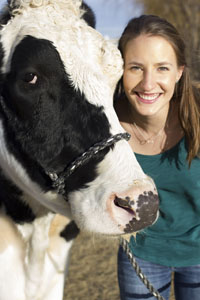 Advancing animal welfare is the main reason Kelly Arthur decided to pursue a career in veterinary medicine. This passion started when she was 10 year-old, after a neighbor poisoned her puppy, Trey, to stop his barking. “I look back on this as the pivotal moment in my life that made me realize animals need certain protections because of how they can be mistreated and are unable to fight back in many instances,” she told us. Advancing animal welfare is the main reason Kelly Arthur decided to pursue a career in veterinary medicine. This passion started when she was 10 year-old, after a neighbor poisoned her puppy, Trey, to stop his barking. “I look back on this as the pivotal moment in my life that made me realize animals need certain protections because of how they can be mistreated and are unable to fight back in many instances,” she told us.
To help her better understand the human-animal bond and better communicate with clients, she helps clients make end-of-life decisions as a volunteer for the Colorado State University Pet Hospice Program, volunteers at vaccine clinics for the homeless, fosters animals, and assists with research projects at CSU’s Agricultural Research Center.
Kelly also has volunteered in an advocacy capacity with both the AVMA and Colorado Veterinary Medical Association, which has exposed her to legislation on a variety of topics, including advocating humane methods to control feral cat populations, attempting to ban tail docking in dairy cattle, and lessening the veterinary student debt burden.
For the past three years, she has participated in the Intercollegiate Animal Welfare Judging and Assessment Contest, which she tells us, “has taught me invaluable lessons about not only understanding science, but being able to convey animal welfare perspectives to a broader audience. These experiences have allowed me to see the breadth of opportunities available in the profession to influence animal welfare.”
Dr. Peter Hellyer, CSU professor of anesthesiology and past president of the CVMA describes Kelly as “an accomplished student, managing a very demanding curriculum while simultaneously undertaking numerous extra-curricular activities related to animal welfare and organized veterinary medicine.”
Dr. Chelsey Shivley, one of Kelly’s CSU Animal Welfare Judging Team coaches, describes Kelly as being “often frustrated as a veterinary student about only learning the results of scientific studies, and not discussing the ethical implications of conducting scientific research on animals. Kelly is determined to bring issues into the light, and help progress the veterinary profession in the field of animal welfare.”
“I see the dichotomy between the animal rights views I grew up with in Los Angeles and the more conservative views I learned in my undergraduate Animal Science degree. I believe this will be beneficial in my future to advance animal welfare even when the opposition can be powerful.” Kelly continues, “I hope I can effectively give back to the profession by working with diverse groups of people to come up with solutions that put the animals first when it comes to relevant animal welfare concerns.”
JOSEPHINE NOAH
UC Davis School of Veterinary Medicine, class of 2017
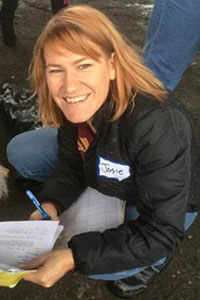 A 2011 HSVMA-RAVS wellness clinic at an Apache reservation in Arizona inspired Josephine Noah to explore her career change to veterinary medicine. While volunteering at the RAVS clinic, she saw how prevalent Rocky Mounty Spotted Fever was in the area, and how the fear of contracting the zoonotic disease was negatively affecting the relationship between the community and their dogs. “I witnessed how a simple thing like providing tick preventive medication had a profound impact on the connection between animals and their people, and thus greatly improved the welfare of these companion animals,” she said, “…This trip solidified my interest in veterinary medicine, and ignited my passion to serve the communities and animals most in need.” A 2011 HSVMA-RAVS wellness clinic at an Apache reservation in Arizona inspired Josephine Noah to explore her career change to veterinary medicine. While volunteering at the RAVS clinic, she saw how prevalent Rocky Mounty Spotted Fever was in the area, and how the fear of contracting the zoonotic disease was negatively affecting the relationship between the community and their dogs. “I witnessed how a simple thing like providing tick preventive medication had a profound impact on the connection between animals and their people, and thus greatly improved the welfare of these companion animals,” she said, “…This trip solidified my interest in veterinary medicine, and ignited my passion to serve the communities and animals most in need.”
Soon after the 2011 trip, she started volunteering with PAW Fund in the San Francisco Bay area. In the five years she’s been with the organization, she’s seen the health of pets improve in the communities they serve, as well as patients passing along the animal care and welfare education they’ve learned on to their neighbors. Even providing basic medical care makes a huge difference: “incessant itching or unhealthy skin can result in an animal being relegated to the back yard, or banned from a child's bed -- yet these issues can often be solved with relatively little expense, and can increase the animal's welfare not just physically, but emotionally, as the human-animal bond can be restored. Further, showing families that issues like these can be solved empowers them to be better animal guardians and to continue to pursue veterinary care as needed, to the best of their abilities,” Josephine shares.
In her role as the volunteer coordinator and technician supervisor for the monthly vaccine/wellness clinics, PAW Fund director/founder Jill Posener tells us Josephine has “developed a skilled and dedicated team of volunteers, and guides them not only in vaccinations techniques and protocols, but in compassionate communication, so that everyone in our team treats our clients and their companion animals with the respect that we ourselves would like to be treated with.”
After graduating next year, Josephine plans to join the PAW Fund as a part-time veterinarian, helping the organization expand their community outreach, medical services, and in-home euthanasias. |
|
Advocacy
|
Veterinary support essential to ending antibiotic overuse
June 17, 2016
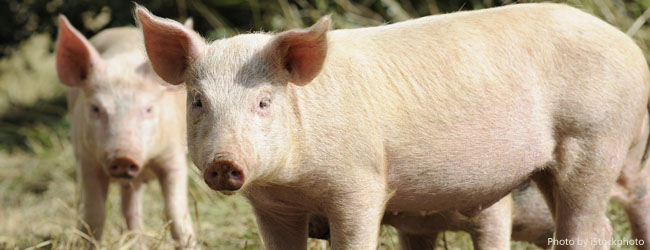
You may have heard recent disturbing news that the second case of Colistin-resistant infection has been found for the first time in the United States. This news comes just a few short months after the first case was reported by the Walter Reed Army Institute of Research, involving a patient in Pennsylvania. Researchers at the U.S. Departments of Agriculture and Health and Human Services have also reported finding Colistin-resistant E. coli in a pig intestinal sample. Colistin is a last resort drug for treating superbug (i.e., multi-drug resistant) infections. These discoveries signal we are that much closer to what has been referred to as a ‘post-antibiotic era,’ where people will die from once treatable infections.
It was only seven months ago that scientists in China first reported Colistin-resistant bacteria in pigs and humans. Colistin is widely used in animal agriculture in China and the emergence of resistance is believed to be associated with these uses. The Colistin-resistant gene, mcr-1, has since also been found in bacteria in Europe, Africa, South America, Canada, and now the U.S.
At least 70% of the medically important antibiotics sold each year in this country are for use in animal agriculture, mostly for non-therapeutic purposes -- not when animals get sick, but in order to promote faster growth and to compensate for poor management practices. Scientists around the world have warned that excessive use of antibiotics in animal agriculture is contributing to the emergence of antibiotic-resistant infections in humans. In 2013, CDC reported that more than 2 million people each year in the U.S. get infected with drug-resistant bacteria, and that there are at least 23,000 associated deaths. The CDC recently stated, “Resistant bacteria in food-producing animals are of particular concern. Food animals serve as a reservoir of resistant pathogens and resistance mechanisms that can directly or indirectly result in antibiotic-resistant infections in humans.”
With the apparent now worldwide distribution of the mcr-1 gene, it is only a matter of time before one of a number of multi-drug-resistant bacterial strains also acquires resistance to Colistin. At that point, there will be no antibiotic options to treat an infection. This is a truly nightmarish scenario.
These problems are contributing to antibiotic overuse:
- High volume of antibiotic use in farm animals
In 2014, more than 20 million pounds of medically important antimicrobials were sold for use in food-producing animals in the U.S. – a 23% increase since 2009. (Source)
- Looming health challenge posed by non-therapeutic antibiotic use on factory farms
The volume of scientific research suggesting that profligate animal agriculture use of these drugs threatens to ruin the efficacy of antibiotics for treating sick animals and people continues to grow. A detailed review of the scientific literature on this issue is available from the Pew Campaign on Human Health and Industrial Farming. Keep Antibiotics Working, a coalition of non-profit organizations concerned about antibiotics overuse, has also compiled a list of scientific articles on antibiotic resistance. (Source)
- Inadequate government action to regulate antibiotic overuse
A federal report released in 2011 found significant holes in the FDA’s voluntary guideline system for antibiotic use on farms. The report also found that the federal government has been collecting insufficient data to address the antibiotic overuse issue. (Source)
Veterinarians Should Take Action
The veterinary community should play a positive and proactive role in this animal health and welfare issue. The majority of antibiotics are routinely fed to farm animals in their feed or water for non-therapeutic purposes, rather than to treat sick animals.
The human medical community, led by the American Medical Association, has joined with scientists, environmentalists and animal welfare organizations (more than 450 groups), in cautioning against this misuse of antibiotics. As leaders in the field of animal health and welfare, veterinary professionals need to step up on this issue now.
How You Can Help
Federal legislation to phase out the non-therapeutic use of antibiotics in farm animals and protect the effectiveness of these drugs for treating sick animals and people has been introduced in the U.S. Congress. Specifically, the Preservation of Antibiotics for Medical Treatment Act (or PAMTA, H.R. 1552 in the House) and the Preventing Antibiotic Resistance Act (or PARA, S. 621 in the Senate), would make it more efficient for the FDA to withdraw approval for non-therapeutic uses of antibiotics that they find to be creating a public health problem. Although the FDA has recognized concerns about antibiotic overuse in livestock, its current procedures are too cumbersome for timely action.
As a veterinary professional, you can help ensure passage of this legislation as part of the efforts to rein in antibiotic overuse. Here are two ways to help:
- Sign the HSVMA petition
HSVMA is collecting signatures of veterinary professionals in support of PAMTA. The signatures will be used to show collective veterinary support for the legislation with federal legislators, the media and the public.

- Ask your federal legislators to co-sponsor PAMTA/PARA
As many co-sponsors as possible are needed in order to build momentum (previous efforts to pass PAMTA have fallen short due to heavy lobbying from the pharmaceutical and agribusiness industries).
Here is a short sample statement you can use to ask your legislators to support. It's important to let them know you are a constituent and a veterinary professional:
As a constituent and veterinary professional, I urge you to co-sponsor the Preservation of Antibiotics for Medical Treatment Act/Preventing Antibiotic Resistance Act (H.R. 1552/S. 621). This important legislation will phase out non-therapeutic use of antibiotics on factory farms. The reckless practice of routinely feeding these vital drugs to animals to keep them from getting sick in overcrowded, unsanitary conditions is contributing to antibiotic resistance that puts sick people and sick animals at risk. Thank you for your support.
Find the contact information for your two Senators and one Representative in Congress»
Thank you for your help in supporting this crucial legislation to phase out the routine, non-therapeutic use of antibiotics in animal agriculture. We need to do all we can to protect animals and people from antibiotic overuse and ensure that these precious drugs remain effective for all of us. |
|
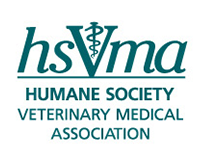
 egree.
egree.
 Advancing animal welfare is the main reason Kelly Arthur decided to pursue a career in veterinary medicine. This passion started when she was 10 year-old, after a neighbor poisoned her puppy, Trey, to stop his barking. “I look back on this as the pivotal moment in my life that made me realize animals need certain protections because of how they can be mistreated and are unable to fight back in many instances,” she told us.
Advancing animal welfare is the main reason Kelly Arthur decided to pursue a career in veterinary medicine. This passion started when she was 10 year-old, after a neighbor poisoned her puppy, Trey, to stop his barking. “I look back on this as the pivotal moment in my life that made me realize animals need certain protections because of how they can be mistreated and are unable to fight back in many instances,” she told us. A 2011 HSVMA-RAVS wellness clinic at an Apache reservation in Arizona inspired Josephine Noah to explore her career change to veterinary medicine. While volunteering at the RAVS clinic, she saw how prevalent Rocky Mounty Spotted Fever was in the area, and how the fear of contracting the zoonotic disease was negatively affecting the relationship between the community and their dogs. “I witnessed how a simple thing like providing tick preventive medication had a profound impact on the connection between animals and their people, and thus greatly improved the welfare of these companion animals,” she said, “…This trip solidified my interest in veterinary medicine, and ignited my passion to serve the communities and animals most in need.”
A 2011 HSVMA-RAVS wellness clinic at an Apache reservation in Arizona inspired Josephine Noah to explore her career change to veterinary medicine. While volunteering at the RAVS clinic, she saw how prevalent Rocky Mounty Spotted Fever was in the area, and how the fear of contracting the zoonotic disease was negatively affecting the relationship between the community and their dogs. “I witnessed how a simple thing like providing tick preventive medication had a profound impact on the connection between animals and their people, and thus greatly improved the welfare of these companion animals,” she said, “…This trip solidified my interest in veterinary medicine, and ignited my passion to serve the communities and animals most in need.”
